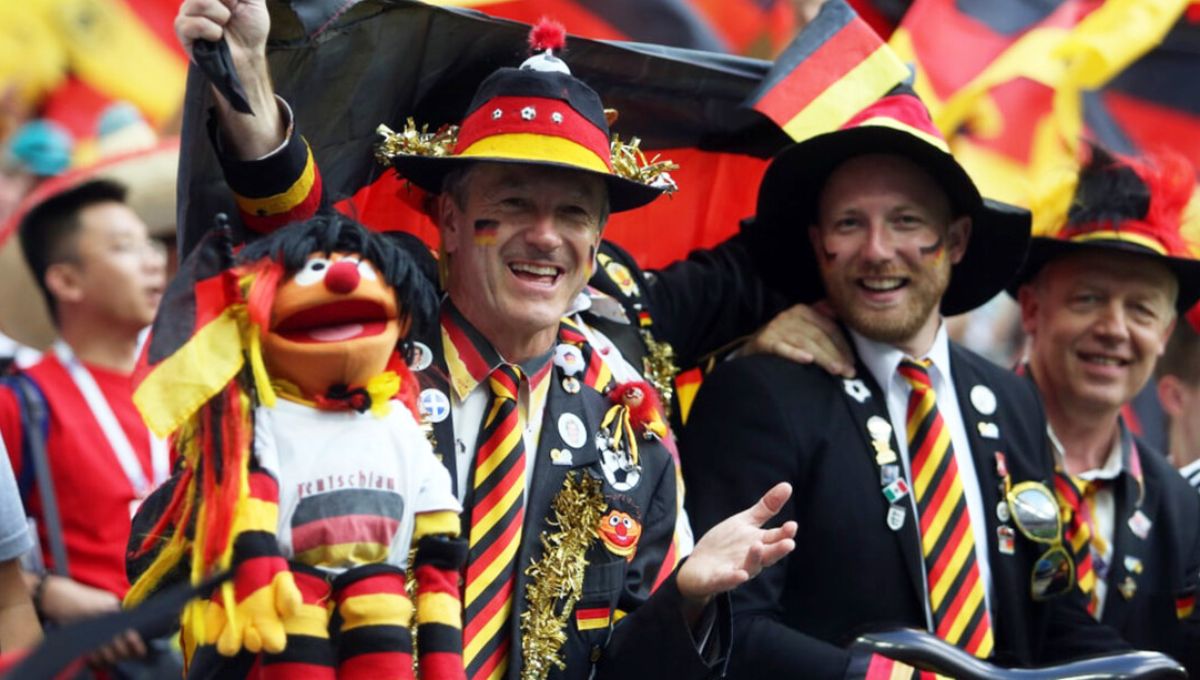The whole Western Europe is good at football. But Germany in particular has seen more success than most European nations. Only Italy is at par with them when it comes to international success.
German is good at football due to several key factors like:
- Robust Youth Development: Germany has a well-established youth development system that focuses on identifying and nurturing talent from a young age. The country boasts numerous grassroots football clubs and academies that provide structured training and development programs.
- Strong Domestic League: The Bundesliga is one of Europe’s top football leagues, known for its competitive nature and high-quality football. German clubs regularly compete at the highest levels in European competitions, providing a platform for players to showcase their skills.
- Tactical Discipline: German teams are renowned for their tactical discipline and organization. Coaches emphasize tactical awareness, positional play, and teamwork, instilling a strong sense of discipline and cohesion within the team.
- Physicality and Fitness: German football places importance on physicality and fitness. Players undergo rigorous training regimes focused on strength, endurance, and speed, allowing them to compete at a high intensity for the duration of matches.
- Psychological Resilience: German footballers are known for their mental toughness and resilience, particularly in high-pressure situations. The country’s footballing culture promotes a never-say-die attitude and a willingness to fight until the final whistle.
- Investment in Infrastructure: Germany has invested heavily in football infrastructure, including state-of-the-art stadiums, training facilities, and sports science departments. This investment ensures that players have access to top-class resources and support systems.
- Coaching Expertise: German coaches are highly respected in the footballing world for their tactical acumen and innovative approaches. The country’s coaching education system produces a steady stream of knowledgeable and skilled coaches who play a crucial role in player development.
- Cultural Significance: Football holds immense cultural significance in Germany, with passionate fans supporting their clubs and national team fervently. The sport unites people from diverse backgrounds and plays an integral role in the country’s cultural identity.
What’s Wrong with German National Team Now?
Recently, the German national team has faced several challenges and shortcomings, leading to concerns and criticisms:
- Poor Performance in Major Tournaments: Germany’s performance in recent major tournaments, such as the FIFA World Cup and Euros, has been disappointing. The team failed to advance past the group stage in the 2018 and 2022 World Cups and suffered round of 16 early exit in the Euro cup, raising questions about their ability to compete at the highest level.
- Lack of Cohesion and Consistency: The team has struggled to maintain consistency and cohesion on the field, often displaying disjointed performances and a lack of fluidity in their play. Issues with team chemistry and communication have been evident, resulting in unconvincing displays against opponents.
- Defensive Vulnerabilities: Germany has shown weaknesses in defense, conceding goals regularly and failing to keep clean sheets in crucial matches. Defensive lapses, including individual errors and positional breakdowns, have cost the team valuable points and led to defeats.
- Struggles in Attack: The team has also encountered difficulties in attack, with a lack of clinical finishing and creativity in the final third. Despite possessing talented forwards and midfielders, Germany has often struggled to break down organized defenses and convert scoring opportunities into goals.
- Managerial and Tactical Issues: There have been criticisms of the team’s managerial and tactical approach, including squad selection, formation choices, and in-game management. Some observers have questioned the suitability of certain coaching decisions and the team’s ability to adapt to different opponents and situations.
- Transition Period: Germany is undergoing a transition period, with a new generation of players gradually replacing older, experienced stars. While this transition is necessary for the team’s long-term success, it has led to uncertainty and inconsistency in performances as younger players adjust to the international level.
- Pressure and Expectations: As one of football’s traditional powerhouses, Germany faces immense pressure and expectations from fans and the media. The team’s recent struggles have intensified scrutiny and criticism, creating a challenging environment for players and coaches.
Overall, the German national team is facing a period of introspection and renewal as they seek to address their shortcomings and return to their winning ways. This process may involve personnel changes, tactical adjustments, and a renewed focus on team unity and performance.
